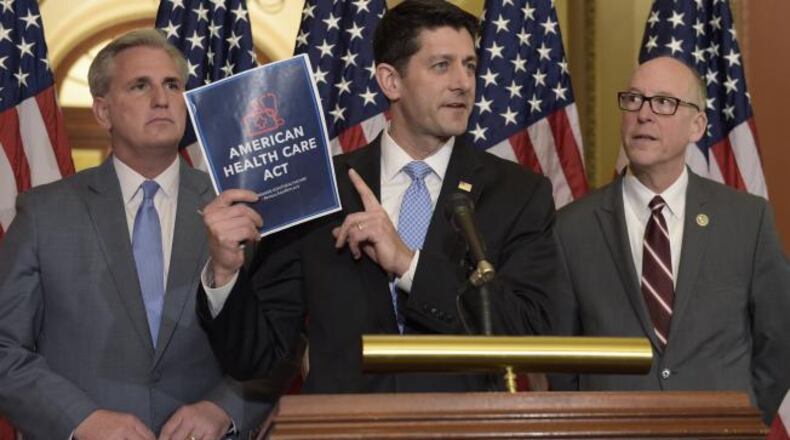President Trump and his fellow Republicans made it clear from the beginning that if they could not "repeal and replace" Obamacare through the legislative process, they would try to destroy it through the bureaucratic process. And at that, they've been pretty effective.
On his very first day in office, remember, Trump signed an executive order mandating government officials "to waive, defer, grant exemptions from, or delay" critical provisions of the Affordable Care Act "to the maximum extent permitted by law." Along those same lines, the administration is also ignoring pleas from insurance companies to renew $7 billion in subsidies that will be needed in 2018 to keep individual health care affordable for lower-income Americans.
"We need swift, immediate action and long-term certainty on this critical program," according to Cathryn Donaldson, spokeswoman for America's Health Insurance Plans, an insurance industry group. "It is the single most destabilizing factor in the individual market, and millions of Americans could soon feel the impact of fewer choices, higher costs, and reduced access to care."
Individual companies from Anthem to Aetna to Blue Cross Blue Shield have also told the government that without those subsidies, they will have no choice but to dramatically raise rates or withdraw from the market altogether. The response from the Trump administration?
Basically, "Go right ahead." The administration seems to welcome or celebrate the withdrawal of insurance companies from the market, even though it puts tens of thousands of Americans in danger.
Interestingly, if you click on the link cited by Spicer, what do you find?
You find Anthem explaining why such a move is necessary:
"Anthem said it was concerned it might lose subsidies that insurers receive to offset the costs of insuring lower-income individuals. Last month, President Donald Trump reportedly told advisers he wanted to end these subsidies. ...
“An increasing lack of overall predictability simply does not provide a sustainable path forward,” Anthem spokesman Jeff Blunt said in a statement."
The calculation by Trump and other Republicans, including House Speaker Paul Ryan, is that a collapse of the individual market next year can be blamed on Obamacare and the Democrats. Maybe, but it seems a bad bet. The party that controls the House, the Senate and the White House will generally be the party that the public holds responsible, especially given that they haven't exactly been shy about their hopes to wreck the current system.
Even a few Republicans are beginning to grasp that fact.
"We should act within our constitutional authority now to temporarily and legally fund cost-sharing reduction payments as we move away from Obamacare," as House Ways and Means Chairman Kevin Brady said last week. "Insurers have made clear the lack of certainty is causing 2018 proposed premiums to rise significantly."
There's no sign that other Republican leaders are willing to join Brady, but polling data confirms the wisdom of his instinct. According to a poll released last week by the AJC, 81 percent of voters in the hard-fought 6th Congressional District described health care as an extremely or very important issue in the race, higher than any other issue polled. Just 25 percent of voters in the district said they backed the GOP House reform bill, which was crafted in part by their former congressman, Health and Human Services Secretary Tom Price.¹
Given the GOP's concerted effort at sabotage and its apparent inability to concoct a plausible replacement to Obamacare, it's hard to imagine that the individual marketplace for health insurance will be anything short of chaos next year. It's also hard to imagine that they won't pay a price for that in the November mid-terms.
----------------------------
¹ In that same AJC poll, 56 percent of 6th District Republicans say they are not too concerned (21 percent) or not concerned at all (35 percent) about Russian intervention into our elections. I just find that remarkable.
About the Author
The Latest
Featured


